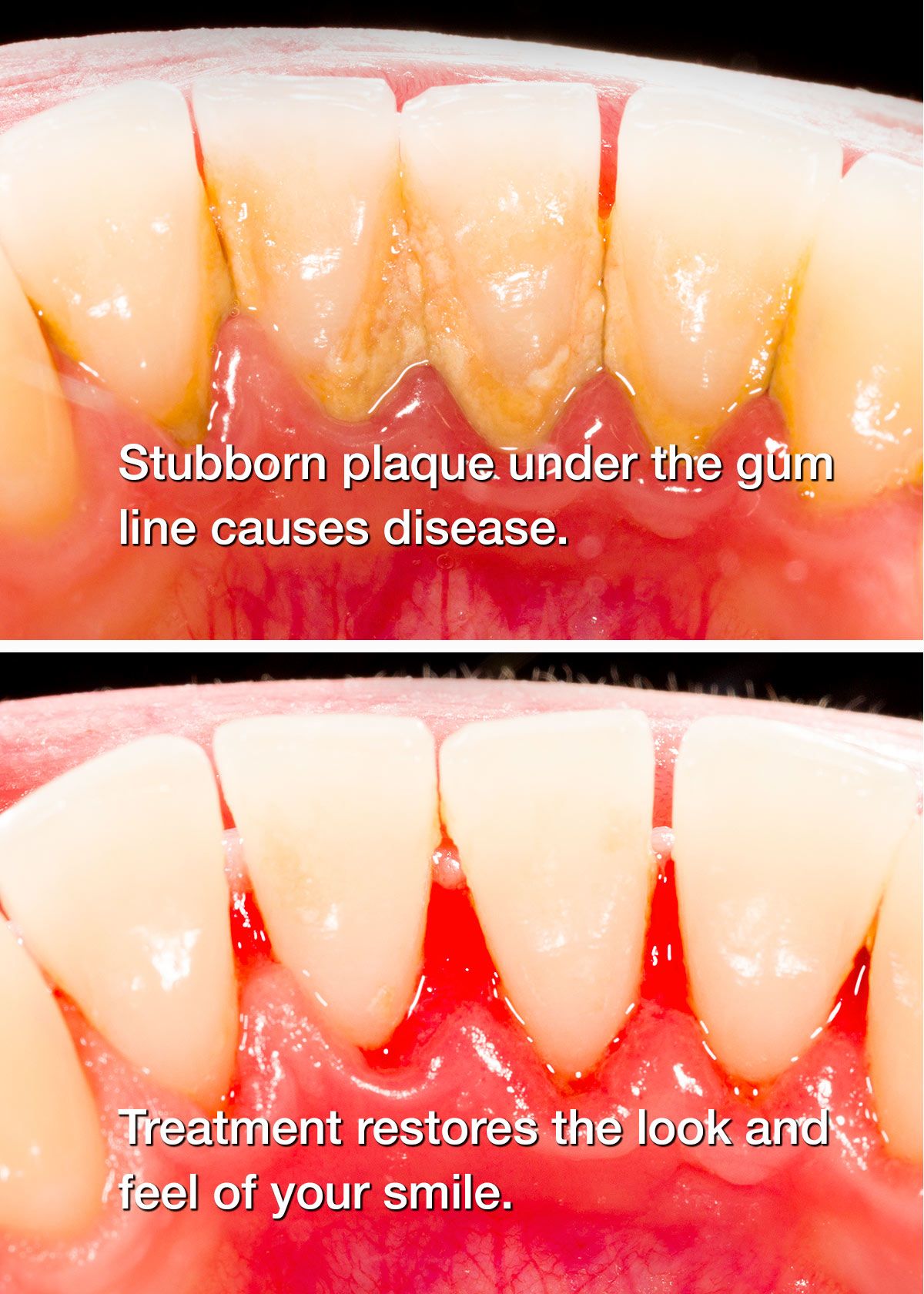
Scaling and Root Planing
Gum disease can cause bleeding, discomfort, and tooth loss. However, with the proper tools, this condition is treatable.
When harmful bacteria accumulates below the gum line, a scaling and root planing procedure can improve the health of your gums.
If you have gum disease, how can scaling and root planing help you?

Scaling and Root Planing Is a Minimally Invasive Treatment for Gingivitis
Reduce Uncomfortable Side Effects
Scaling and root planing can improve common symptoms of gum disease, including bleeding gums and bad breath. Treatment can also reduce the size of periodontal pockets, as well as your risk of tooth decay.
Treatment Is Non-Surgical
Also known as a deep cleaning, scaling and root planing is typically the first line of treatment for periodontal disease. Unlike a gingivectomy, it does not require incisions or sutures.
Decrease Your Chance of a Serious Illness
Gum disease has been linked to diabetes, heart disease, and oral cancer. A deep cleaning can minimize your risk of associated diseases.
Gum Disease Affects Nearly Half of American Adults
Can't Daily Brushing and Flossing Fight Gum Disease?
Though daily brushing and flossing is integral to your oral health, it must be combined with routine visits to the dentist to really prevent gum disease. Unfortunately, some individuals are simply more prone to developing gum disease than others, no matter how conscientious their oral hygiene routine. Should you develop the condition, your dentist can use special tools to clean areas beneath the gum line, which are not accessible with a regular toothbrush. They may also use an antibiotic such as ARESTIN to reduce inflammation and bacteria and encourage healing.
What to Expect During a Deep Cleaning
Your dentist will apply a numbing solution to your gums.
Together with a hygienist, your dentist will use tools to remove tartar and plaque buildup along and below the gum line.
When the tartar is removed, your dentist will use another tool to smooth the roots of your teeth. This helps to prevent new bacteria from accumulating.
In some cases, your dentist will apply an antibiotic to the affected area.
Treatment generally lasts under one hour. You dentist will assess the success of your procedure during a follow-up visit. Most periodontists agree that the majority of patients do not require additional treatment following scaling and root planing.
Early Intervention Ensures Higher Success
When left untreated, gingivitis can progress to periodontitis, which has serious consequences for the health of your teeth and gums. Advanced periodontal disease can impact the supporting bone and tissue around your teeth and ultimately lead to tooth loss. To avoid more extensive and costly restorative treatments like dental implants, it is important to address gum disease in its earliest stages.
If you have gum disease, do not wait to schedule an appointment with your dentist. A scaling and root planing procedure can protect the long-term health of your smile.







